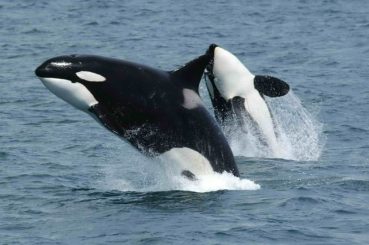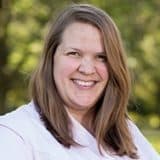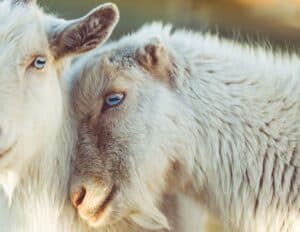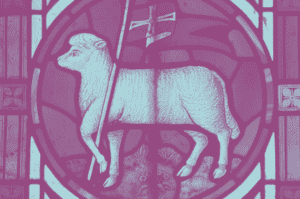
Jerusalem, Jerusalem, the city that kills the prophets and stones those who are sent to it! How often have I desired to gather your children together as a hen gathers her brood under her wings, and you were not willing!
~Matthew 23:37
I am a mother.
I am a vegan mother.
I am a Jesus-following, vegan mother of a tween-age mostly-vegan, living in the Pacific Northwest of the United States in 2019.
I have been thinking a lot lately about mothers and about the path of human destruction that leaves grieving mothers in its wake; about the hope and love and viscera connecting me to my own son, and the unspeakable fear of losing him; of becoming intimately acquainted with the deepest grief.
The reality of maternal grief has many faces, past and present. Eve, who lost one son at the hands of another. Hagar, abandoned in the wilderness to watch her son die. Bathsheba, Jocheved, and Mary. Refugee mothers whose children are kidnapped at the U.S. border—the continuation of a long national history of tearing children of color away from their parents. Mothers who have lost children to violence; to addiction; to disease; to poisoned water and air and land; to others’ pursuit of power or material wealth at the expense of all else. These mothers are everywhere.
The reality of maternal grief has many faces.
Last year, a grieving orca mother, called J35 by some and Tahlequah by others, carried her dead calf for 17 days while swimming near the coast of Washington state. She and other orca mothers, weak from hunger caused by Euro-American colonization and commodification of the environment, have lost many other babies. But she would not let this baby sink into the ocean waters easily.
J. Nicole Morgan, author of Fat and Faithful, says “Like many, the grieving mother orca story has shaken me. Her relentless grief is universal…I can’t stop thinking about Rizpah…the biblical mother of sons who were killed in the political power games of King David. She stands guard over their bodies, forces the King to take notice and see the implications of his choices. I believe that creation tells us the heart and story of the Creator. And I can’t help but think that Tahlequah is refusing to leave the body of her child, holding her up above the waves, protesting with all the might she has and hoping it will mean that we see the death-causing implications of our choices.”
Tahlequah and the other orcas in her pod are starving and losing babies because the wild salmon that sustains them no longer live in abundance in the waters of the Pacific Northwest, stymied in large part by the choice to construct dams along the Lower Snake River. These dams, erected by the U.S. government to generate electrical power, have had a devastating effect on the ability of the Nez Perce and other First Nations tribes to maintain their way of life, and the dams violate treaty promises to maintain indigenous access to fish in the river. The fish the orcas do eat are often now contaminated by the byproduct of human activity (pesticides, plastics, chemicals).
Each time I think about Tahlequah, I think about Clarabelle, a rescued mother cow who was spared from the slaughterhouse after being used by an educational dairy in Australia. Workers at the sanctuary that rescued Clarabelle were delighted to discover that she was pregnant, knowing that for the first time in her life, the mother cow would be able to raise her offspring. Like other mammals, Clarabelle produces milk for babies. But the dairy industry takes calves from their mothers within hours of birth. The milk meant for them is used by humans to pour on cereal or is processed into the cheese that is melted onto the ground-up body of another bovine mother.
After arriving at the sanctuary, when Clarabelle’s behavior changed noticeably, sanctuary workers discovered that Clarabelle had given birth and was systematically hiding and moving her calf to avoid human detection. Because labor doesn’t end when the baby exits the body. The pain and struggle of protecting our children continues as long as there is breath in our bodies. Clarabelle’s actions demonstrate that other creatures have ability, emotion, and intelligence, a fact that some find astonishing simply because Clarabelle is called an “animal.” Syl Ko says, “The ‘difference’ is, in the case of humans and animals, created by us, as a functional device. As a result, many terms that are animal-specific carry within them the parameters for how to treat that being.”
The stories of Clarabelle and her infant Valentine and of Tahlequah, the salmon of the Lower Snake River, the Nez Perce, and the colonizing U.S. government are two specific examples of similar stories playing out in lands and waters across the globe. They are, in part, stories of misused and abused power, of hierarchy and dominance, of myopic and anemic ideas of what it means to flourish. They are a product of the mindset of scarcity, not abundance.
Through Christ’s birth, life, death, and resurrection, the Creator God began the work of reconciling the whole world back to God. “Everything old has passed away…in Christ, God was reconciling the world,” says the writer of 2nd Corinthians. The epistle to the Romans declares: “…the creation itself will be set free from its bondage to decay and will obtain the freedom of the glory of the children of God. We know that the whole creation has been groaning in labor pains until now, and not only the creation but we ourselves…” (New Revised Standard Version). The whole creation has been groaning in labor pains. God’s very good creation adapts in an attempt to survive. She breathes and shifts her body, pushing out a new life.
The whole creation has been groaning in labor pains. God’s very good creation adapts in an attempt to survive. She breathes and shifts her body, pushing out new life.
How can the church serve as midwives to a reconciled creation? How can Jesus-followers reject the abuses of power that create systems that lead to the unnatural and unnecessary suffering of mothers and others? Can we feel the tragedy of an orca mother? Can we connect our grief to the grief of a cow mother? Can we reimagine what it looks like to live as one creature, one family, one community in relation to other creatures, other families, other communities?
As a Christian, a follower of Christ, I am called to a life in pursuit of mercy, justice, simplicity, and faithful service. When I read Tahlequah’s story, I feel helpless. I can’t take back the events of the last two hundred years that have led to her sorrow and the sorrow of so very many indigenous mothers. I don’t speak her language and can’t provide direct comfort.
But there are a few things I am led, even compelled, to do to try my best to avoid complicity in systems and habits that cause harm to others. I have a lot to learn and I make a lot of mistakes.
But I am connected to Clarabelle and to Tahlequah and to grieving and frightened mothers all over the planet. We are all connected to the God who gave us life and who suffered the death of her own son for our sake and for the promise that, one day, wolves and sheep and asps and humans and orcas and salmon will inhabit the earth together, in peace.
 Sarah Withrow King is the co-director of CreatureKind and the author of two books, Animals Are Not Ours (No Really, They’re Not): An Evangelical Animal Liberation Theology(Wipf & Stock) and Vegangelical: How Caring for Animals Can Shape Your Faith (Zondervan). This article first appeared on Jesus Radicals and is reprinted with permission.
Sarah Withrow King is the co-director of CreatureKind and the author of two books, Animals Are Not Ours (No Really, They’re Not): An Evangelical Animal Liberation Theology(Wipf & Stock) and Vegangelical: How Caring for Animals Can Shape Your Faith (Zondervan). This article first appeared on Jesus Radicals and is reprinted with permission.


